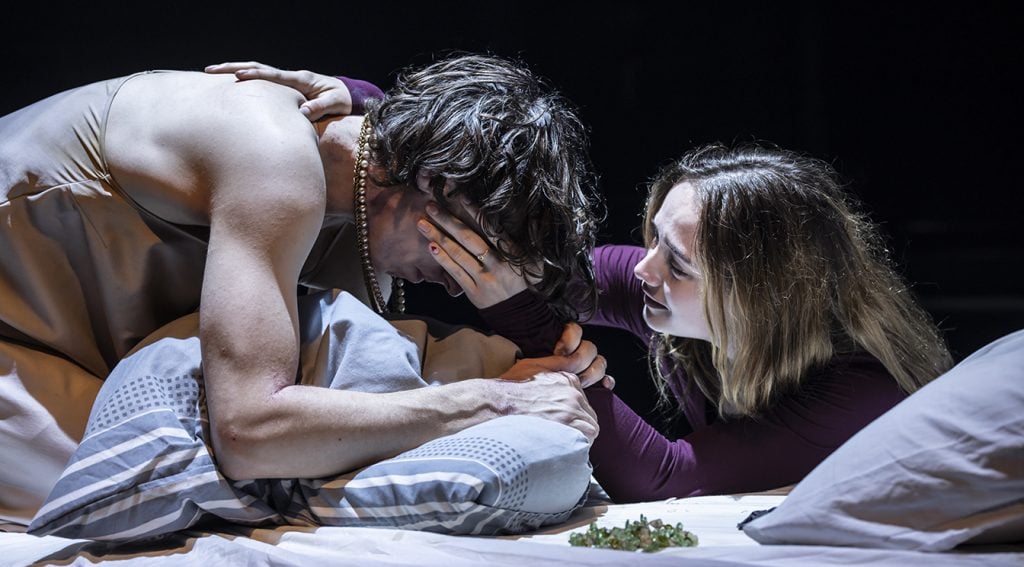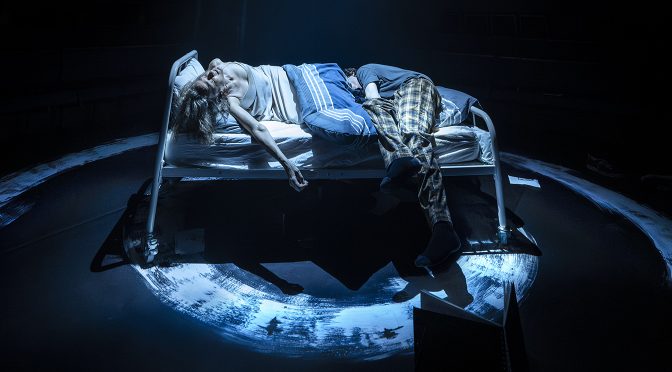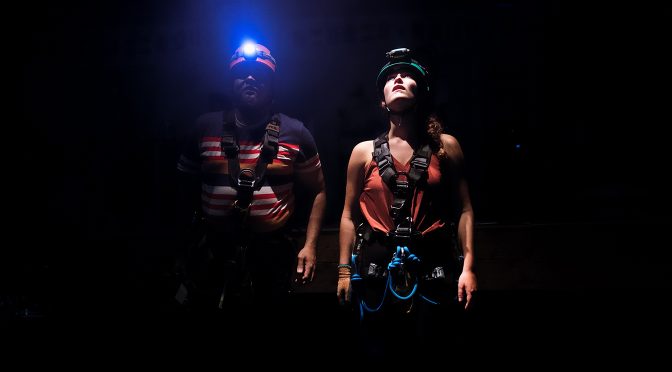It’s hard to believe Polly Stenham was just 19 when she wrote her award-winning play. Fifteen years after its première at the Royal Court, this solid, focused writing feels just as fresh, while its harsh yet humorous look at mental health is as urgent as ever.
Parentification is the theme (that’s from the programme) as mother Martha is looked after by young son Henry. These are tremendous roles for Niamh Cusack and Kasper Hilton-Hille. Cusack’s experience means she can make her character magnetic. While her actions are upsetting, even inexcusable, traces of the woman she was before illness are clear. Martha’s own trauma makes her sympathetic and her love for Henry is twisted but indisputable. Hilton-Hille makes a professional stage debut whose precociousness mirrors Stenham’s back in 2007. It is heart-wrenching to see how the youth has tried to save his mother and the impact it has had. Henry is “a good boy with bad parents” but there is a frightening rage to the writing and performance that Hilton-Hille conveys brilliantly.
Youth is what we’re about – which makes sense – but also makes Martha a mystery. And the only other adult role suffers. Dominic Mafham does an excellent job as the absent father, arriving from Hong Kong late in the day. But while the character deserves the blame he gets, such finger pointing comes close to simplistic and his inclusion in the play feels rushed.

On firmer ground, the play tries hard to be more than a shocker, and director Josh Seymour does well to bring out ambivalence – Martha and her boy aren’t allowed to steal the show. A daughter provides an excellent role for Ruby Stokes, a second fantastic stage debut, who impresses with precious moments of restraint. She’s a foil, for sure, but still a full character – and funny. A schoolfriend is also successfully written and gives us another performance to praise, this time from Sarita Gabony. Both girls could be dismissed as spoiled brats – Stenham has a keen eye for privilege in many forms -until you see what they are going through.
There’s no doubt that That Face is fraught, possibly too much so for all tastes. But, importantly, much of the drama and self-indulgence is not just because of the teenagers. Martha’s “upside down world” is too obvious at times. And the “nightmarish quality” (cleverly reflected in Eleanor Bull’s design, which includes an excellent revolving bed) referred to is far from subtle. There are lots of uncomfortable moments that Seymour handles bravely. If some of decisions might be better suited to a less intimate venue, that might bode well for the show’s future. I could see a transfer for this one – the play and production deserve it.
Until 7 October 2023
Photos by Johan Perrson


